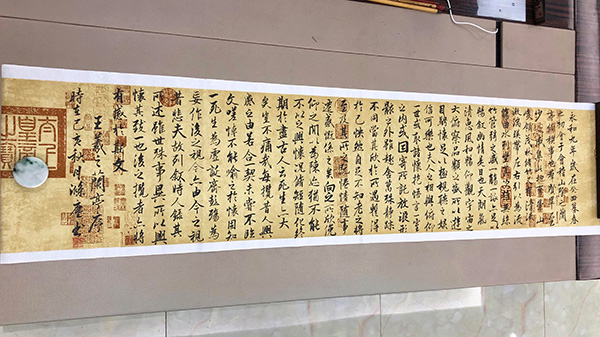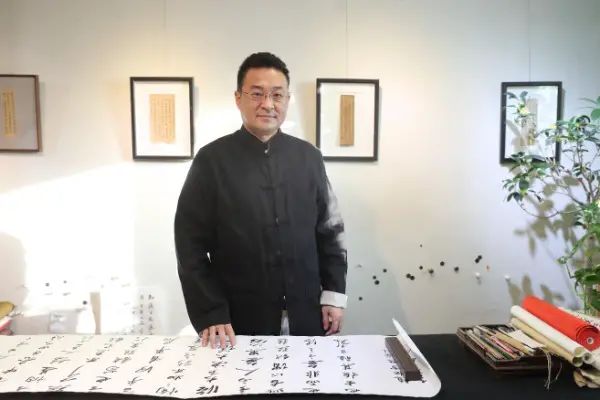A character-forming display of elegance and style has seen Wu Dichen, 29, garner more than 1 million fans as her soft smile belies the depth of her expertise and her exquisite style.
Wu has won over numerous fans on Chinese social media platforms since she released her first video on sharing platform TikTok in May 2018. But in this case the modern technology is used to highlight a traditional skill far from the usual fare of cooking, singing or plain publicity seeking. Wu's fame is due to her delicate and fascinating writing of Chinese characters.
One of the videos Wu released on the platform in December 2018 saw the number of her fans surge by about 60,000 overnight as she brought the ancient craft to a new generation of admirers.
She is pretty. Her handwriting technique and style are beautiful too, said a fan commenting on Wu's video. Another fan said: I rely too much on my mobile phone and I often forget how to write (Chinese characters). Her videos encourage me to write again.
Wu is delighted that her videos have inspired more young Chinese people to pick up the brush to learn calligraphy.
I didn't expect that my videos would have received so much attention and that afterward the viewers were more interested in calligraphy, an important ancient Chinese art form, says Wu in a phone interview with China Daily. Chinese characters carry on Chinese culture and history.

A work by Wu Dichen, a copy of the famous piece Lanting Xu (Preface to the Poems Composed at the Orchid Pavilion) made by Wang Xizhi during the Eastern Jin Dynasty (317-420).[Photo provided to China Daily]
Wu was born and raised in Gaotang county, Liaocheng city in Shandong province, which is also home to Li Kuchan (1899-1983), a famous Chinese painter, calligrapher and art educator. Gaotang county is renowned as a center of art and calligraphy.
Wu's grandparents were both teachers and her grandfather practiced calligraphy at home. This inspired Wu to learn the art as a child. She had a close bond with her grandfather, she says, who suggested her name at birth. Dichen literally means washing away the dust, to have a pure soul. Wu recalls that during childhood she loved playing a writing game with her fingers in the air, mimicking the style and strokes of Chinese characters she saw on the streets and on TV.
About four years ago, Wu attended a calligraphy class, catering to adult learners. She learned how to write in the style of xingshu (running script) and kaishu (regular script). Wu, who worked in a local internet company, practiced calligraphy for about four hours every day after work.
The more I practiced, the more I loved calligraphy, Wu says. Besides using ink and brush, Wu also uses a pen to write.
The process of writing helps me to focus my thoughts and relax my mind. Usually I write Chinese poems, which is a great way to learn about traditional culture.
Unlike many of her peers, who are addicted to their mobile phones for playing video games or watching TV shows, Wu is self-disciplined and focuses on her calligraphic writing. She also loves reading books about calligraphy and drawing with colored pencils.
 简体中文
简体中文





